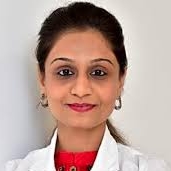
DR VRUSHNI BHUTA
IVF/Assisted Reproduction
- Fees: INR 1,500
-
Monday 8:00 AM - 5:00 PM
(See all timing)Monday 8:00 AM - 5:00 PM,
Tuesday 8:00 AM - 5:00 PM,
Wednesday 8:00 AM - 5:00 PM,
Thursday 8:00 AM - 5:00 PM,
Friday 8:00 AM - 5:00 PM
Feedback For Dr Vrushni Bhuta
Write FeedbackDR L H HIRANANDANI HOSPITAL Timing
Monday - Friday
8:00 AM - 5:00 PM
Online Consultations
Monday
10:00 AM - 6:00 PM
Tuesday
10:00 AM - 6:00 PM
Wednesday
10:00 AM - 6:00 PM
Thursday
10:00 AM - 6:00 PM
Friday
10:00 AM - 6:00 PM
Saturday
10:00 AM - 6:00 PM
Who is a fertility specialist?
A fertility specialist is a physician who practices a subspecialty of gynecology and obstetrics called reproductive endocrinology and infertility (REI). Fertility specialists focus on diagnosing, treating and preventing male and female infertility. These physicians have completed 4 years of medical school and at least 4 years of residency training in obstetrics/gynecology (OB/GYN) or urology (andrology).
Is a gynecologist a fertility specialist?
Fertility specialists are not just gynecologists. They are a reproductive endocrinologist and practice reproductive endocrinology and infertility (REI) which is the subspecialty of obstetrics and gynecology.
When should you visit a fertility specialist?
An average woman in her thirties has a 15% to 20% chance of getting pregnant in an average month. As women get older, their fertility begins to decline and so does their chance of getting pregnant in an average month, which is why is suggested that the patient should make the call before they’ve passed the threshold of 35.
How long should you wait to see a fertility specialist?
If you are under 35, you should see a fertility specialist after you have tried to conceive for 12 months. If you are 35 to 39, you should see a fertility specialist after you have tried to conceive for 6 months. If you are 40 or more, you should see a fertility specialist after you have tried to conceive for 3 months.
What mean the treatment methods used by a fertility specialist?
- Fallopian tube surgery
- Endometriosis, fibroids, and PCOS
- Laparoscopy.
- Epididymis surgery
- Assisted conception methods like Intrauterine insemination (IUI) and In vitro fertilization (IVF)
What happens during your first appointment?
One of the initial things the fertility specialty will want to know is whether or not you're ovulating. At your first meeting with the doctor, he or she will go over your medical history and then outline the fertility tests you and your partner will need to have. For men, the basic test for infertility, semen analysis (SA), will be performed, in which a sample of ejaculate is evaluated in a lab.
